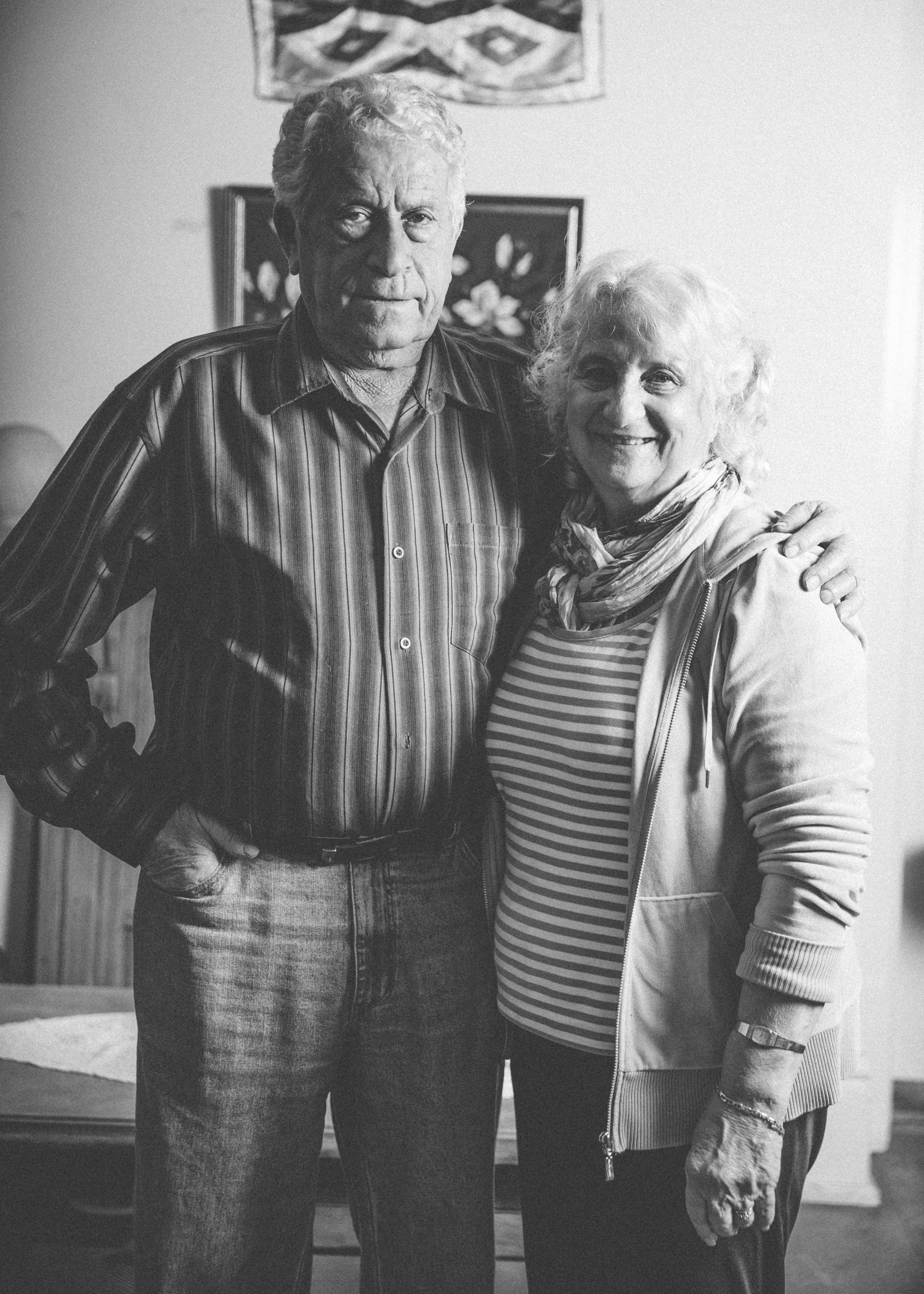‘Mum, you were born in Fremantle weren’t you?’
My parents are from Molfetta, Italy. I lost my mum when I was really very young so I don’t have many memories of her. We were all born at home in Collie Street, Fremantle. Then my mum had a couple of miscarriages, she was pregnant again, about 45, and was due to be induced. That was the first birth she was going to have in hospital. So we all sort of said goodbye to her, and gave her a kiss, and sent her off to hospital and unfortunately the next day (we don’t really know what happened) she passed away and the baby did as well. Yea, pretty traumatic. It’s really strange because I don’t remember a lot of things about it.
My dad was a seaman. He was interned when the war broke out. Italy was at war against Australia, with the Germans. The government was frightened that [Italians living in Australia] would somehow get information out, just because they were Italian. I think my dad did have the chance to denounce his fascism or Italian identity. My dad wasn’t a fascist or anything but he was someone that stuck to their morals – ‘no, I’m Italian’. But he said he was always treated very well, he had no complaints.
‘What about you dad, what’s your earliest memory of Fremantle?’
When we first got to Australia by ship, it took 24 days. As we approached the port it looked beautiful. At about five minutes to seven, we approached Fremantle. Oh my god! All that corrugated iron. Cos that’s all it was, in those days. I thought ‘Oh my god, where are we?’ When all of the other places looked nice, this was absolutely rubbish. But, after that, I liked the place, and I would never change Fremantle with anything. Fremantle reminds me of where I come from – north of Naples; it’s just about the same.
‘Dad, I just want to touch briefly on your life in Italy so that the whole story makes sense.’
My dad was a taxi man but with a horse. That’s what he was when he was younger. Then he was in exporting fruit and stuff like that. That was after my mother and my sisters got blown up.
‘Do you want to tell us that story?’
Not really.
All I can remember is that I walked into this bus and I see my two sisters, my mother and my grandmother, and a friend from next door. My mother was intact but my grandmother and my sisters were in pieces. Just limbs everywhere. It was an English landmine. The war had just about finished. There were bombs everywhere. Every day I saw people get blown up. My brother and I learned English. Every day my brother will say ‘one more person finished’. We had all been on the patio at our place, I’ll never forget, my mother was frying sardines. We just moved from there, went about 200 yards. And we heard this loud bang, and my brother said ‘one more person finished’.
It wasn’t one person it was five persons.
So we came back and we saw a bus stopped in front of our place. It was there to collect the bodies. My mother had just one piece [of shrapnel] in her heart. But my grandmother and my sisters were in pieces. We just missed out. My sisters were 16 and 14. I was nine.
‘And finally, if you could plan the last thing you’d ever say to me, what would it be? Mum?’
Speak about me often to my grandchildren.
‘Mmm. I like that.’


